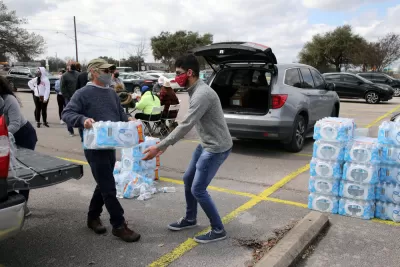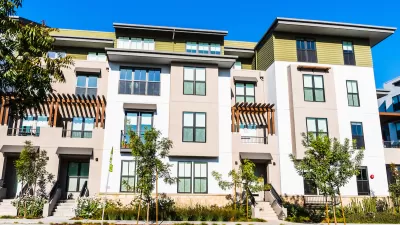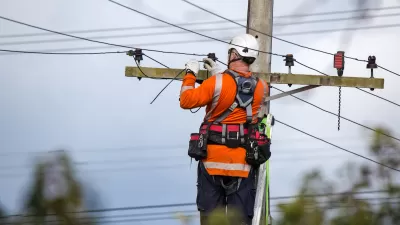Recent devastating weather events highlight the importance of community connection in keeping people safe when infrastructure fails.

Writing in Next City, Yvonne Marquez highlights the importance of mutual aid networks in keeping communities safe during emergencies like extreme weather events
Marquez provides the example of Susana Edith from Texas, where a 2021 winter storm caused debilitating damage to infrastructure across the state and killed hundreds of people. “Edith is the founder of Lucha Dallas, a community-based collective that coordinated with other mutual aid groups in North Texas to bring food, warm clothing, sleeping bags and tent warmers to their unhoused neighbors; they even raised cash donations to pay for hotel rooms for those who could not access shelters.” As Marquez points out,
The practice is nothing new. Communities of color and other marginalized groups have long relied on mutual assistance when government services fell short. But now, many frontline communities are taking up the practice as a way to become more resilient in the face of increasingly extreme weather.
“Mutual aid is predicated on the understanding that everyone in a community has something to contribute and may need help at some point.” Research shows that more connected communities tend to fare better during weather crises.
The rise of mutual aid networks also exposes a crisis of governance in many U.S. cities, where local agencies fail to provide sufficient assistance to their most vulnerable constituents.
FULL STORY: Knowing Your Neighbors Could Save You From The Next Climate Disaster

Planetizen Federal Action Tracker
A weekly monitor of how Trump’s orders and actions are impacting planners and planning in America.

Maui's Vacation Rental Debate Turns Ugly
Verbal attacks, misinformation campaigns and fistfights plague a high-stakes debate to convert thousands of vacation rentals into long-term housing.

Cuomo Is the Candidate of Both NIMBYs and Developers. What Gives?
In the New York City mayoral race, odd bedfellows align to preserve the housing status quo.

San Antonio and Austin are Fusing Into one Massive Megaregion
The region spanning the two central Texas cities is growing fast, posing challenges for local infrastructure and water supplies.

Charlottesville Temporarily Has No Zoning Code
A judge ordered the Virginia city to throw out its newly revised zoning code, leaving permitting for new development in legal limbo.

In California Battle of Housing vs. Environment, Housing Just Won
A new state law significantly limits the power of CEQA, an environmental review law that served as a powerful tool for blocking new development.
Urban Design for Planners 1: Software Tools
This six-course series explores essential urban design concepts using open source software and equips planners with the tools they need to participate fully in the urban design process.
Planning for Universal Design
Learn the tools for implementing Universal Design in planning regulations.
Heyer Gruel & Associates PA
JM Goldson LLC
Custer County Colorado
City of Camden Redevelopment Agency
City of Astoria
Transportation Research & Education Center (TREC) at Portland State University
Jefferson Parish Government
Camden Redevelopment Agency
City of Claremont





























